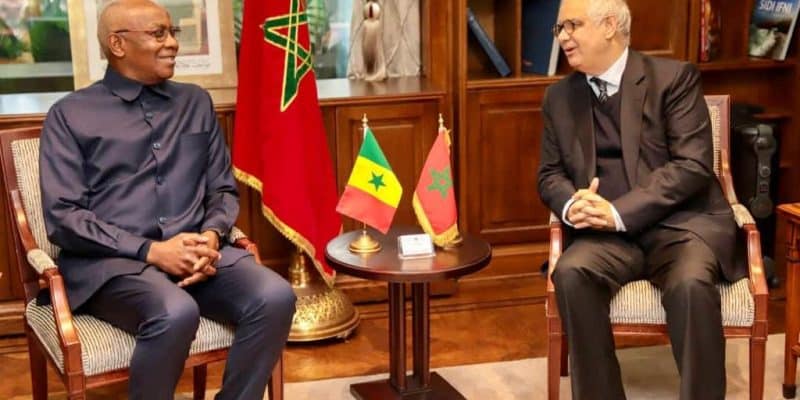Morocco and Senegal are strengthening their cooperation in the field of water supply and sanitation. The memorandum of understanding was signed on 18 January 2023 between the Moroccan Minister of Equipment and Water, Nizar Baraka, and Serigne Mbaye Thiam, the Senegalese Minister of Water and Sanitation.
Morocco and Senegal will continue to build on each other’s expertise in the fields of water and sanitation. The Moroccan and Senegalese governments have just signed a new memorandum of understanding on the subject. This was done in the premises of the Moroccan Ministry of Equipment and Water in Rabat.
The memorandum will enable the two countries to strengthen their cooperation in the area of drinking water services. Indeed, Morocco and Senegal are well advanced in this sector, with “state-of-the-art” facilities to their credit. This is the case, for example, of the third drinking water station of Keur Momar Sarr (KMS), which will be inaugurated in July 2023 in Senegal with a capacity of 200,000 m3 per day. As for Morocco, it also has a range of drinking water treatment plants, the latest of which was commissioned in Taroudant, a town in the Souss-Massa region.
Senegal has made progress in terms of water supply with a rate of 98.8% in urban areas and 91% in rural areas (in 2021) according to the Senegalese Ministry of Hydraulics and Sanitation, the West African country is counting on the experience of the Cherifian kingdom to achieve the sixth sustainable development goal (SDG6), which aims to achieve universal access to drinking water by 2030. And in Morocco, the rate of access to drinking water is currently 100% in urban areas and 91% in rural areas, according to a report by the African Development Bank (AfDB).
Read also –
The rationalisation of irrigation water, notably through the popularisation of modern systems, will also be at the centre of exchanges between Morocco and Senegal, when it is known that drought drastically reduces water resources there. Although the Cherifian kingdom is already implementing alternative solutions such as the desalination of sea water and the reuse of treated wastewater, it remains one of the nations on alert with only 500 m3 of fresh water per inhabitant per year, compared to 2,500 m3 in 1960, according to the United Nations (UN).
Cooperation between Morocco and Senegal will also be strengthened around sanitation through solid waste management, the reduction of open defecation and wastewater treatment. In 2021, Senegal had a sanitation access rate of 67.4% in urban areas against 42.3% in rural areas, according to the Senegalese Ministry of Water and Sanitation.
Inès Magoum






